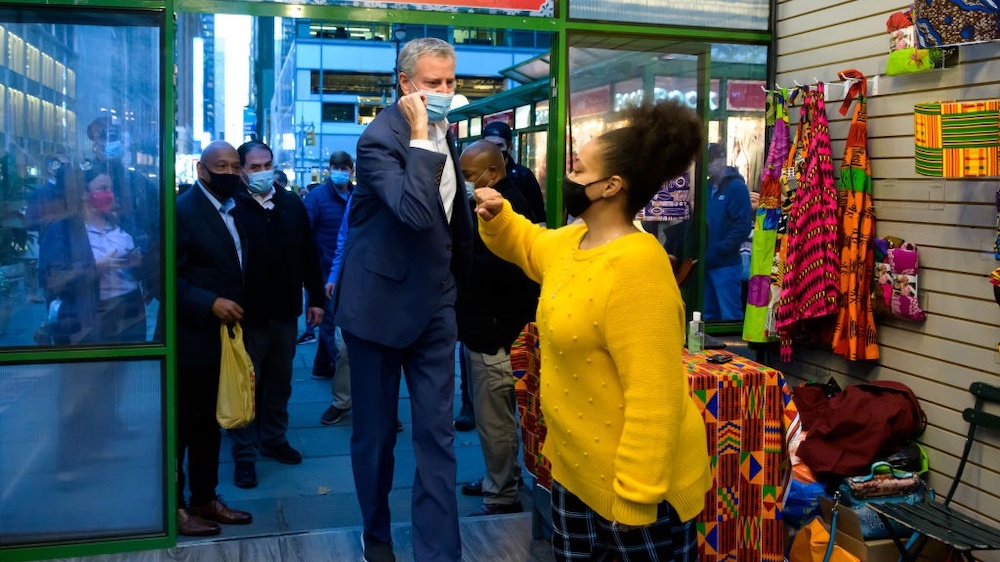If you’re interested in sharing your opinion on any cultural, political or personal topic, create an account here and check out our how-to post to learn more.
____
I wrote this before the attempted coup that took place on January 6, 2021. I was apprehensive about sharing it, but I know my audience. My audience is the silent majority. The silent majority who sometimes do not understand that they, too, are entitled to walk the halls of power and request that their needs be met. A majority, who wants to be heard and advocate for themselves, but are not sure how. Regardless of how we arrived in this country, we are United States citizens. We the people, too!
We often look at government and politics as something that happens over there, that does not impact our daily existence. There are moments, flash points, when we get a wake up call, but often after those moments, many of us fall back into our daily routines. When we stop paying attention, people go right back to their regularly scheduled programming, in the form of passing laws and budgets to retain power or disenfranchise. We know there were contradictions in the founding of the United States, but one thing stands (barely), and that is that this is a representative government.
What does a representative government mean? At its core, every single elected official represents a group of people, constituents, in a specified geographic area, or an electoral district. Most people refer to elected officials as politicians, a word that has a negative connotation. The use of the word "politician" does not keep the fact that they are elected representatives front of mind. I believe it contributes to “the people” forgetting that we elect them. Elected means that we chose them for a specified term. At a certain point, if the seat is contested, they will have to run for re-election and we, the people, can decide not to elect them again. We, the people, can decide to elect someone else to represent us.
My affinity for the phrase “we, the people” comes from the fact that our government was formed to empower its people — granted, not all people initially. We, the people, are the first three words of the preamble to our constitution, the law of the land. Abraham Lincoln, in the Gettysburg Address said, “Government of the people, by the people, for the people, shall not perish from the earth.”
This is our government. We have a role and a voice in shaping it. The “founding fathers” created a representative government and divided into three branches (executive, legislative and judicial), with no one branch having absolute power. They gave each branch the authority to check the other branch — a system of checks and balances.
The mayor of any city represents all of the people who live in that city. Your county executive represents all of the people who live within the county. Your governor represents all of the people who live in the state.
Please note the following:
- I did not write all of the people who voted for them.
- I did not write all of the people in their political party.
- I did not write all of the registered voters.
- I did not write all of their campaign donors.
Elected officials represent all of the people who reside in that geographic area, their respective electoral district and constituents. Even your states or district attorney prosecutes on behalf of “the people.” No elected official represents themselves. Elected officials may act like they represent themselves or a small interest group, but they do not. It is up to we, the people, to remind them. Not like the actions we saw on January 6, 2021 at our Capitol, but through vigilance and building working relationships with them.
They are elected to work, speak and act on your behalf. Every resident of the United States, except DC residents, has at least 15 elected representatives — elected officials, politicians — working on our behalf, representing us, enacting laws, creating policy and passing budgets that affect our lives. Because they are representing us, you have the right to voice your opinion regarding their actions.
We, the people, should participate not only through voting, but by engaging our elected representatives during their tenure in office. We, the people, can have a constructive dialogue with our elected representatives, or their staff, regarding our questions and concerns, the actions they did, did not or should take, and how those actions will impact our lives. We can discuss laws they should consider or laws you want them to consider, budgets for government programs and services, or agency leaders they may need to question. You are allowed to contact their office to express your concerns. You can also let them know that they are doing a good job, that you support a piece of legislation or maybe just to see if they are OK after the events of January 6, 2021.
The United States government was designed for participation of the people. At its inception, "the people" meant white men who owned property. Today, "we, the people" means all people — attempts at suppression and disenfranchisement notwithstanding. We, the people, includes you. There is strength in numbers. Seek out and organize like-minded individuals. It can begin with you.
If you need help learning who your elected representatives are, visit the “Find My Representatives” page of my website. You can receive information directly to your inbox by going to your representatives' websites, signing up for their newsletters and following them on social media to stay informed.

